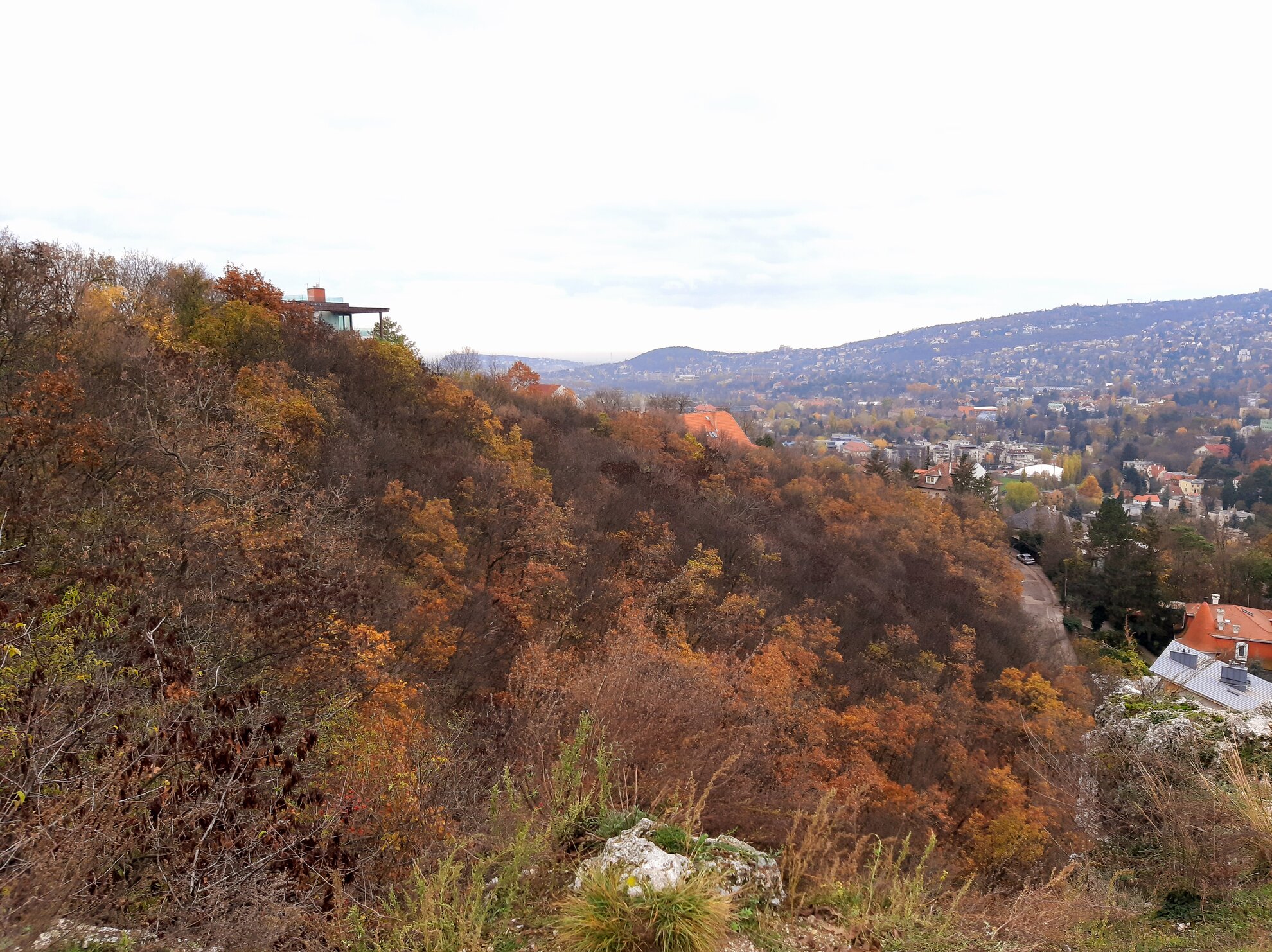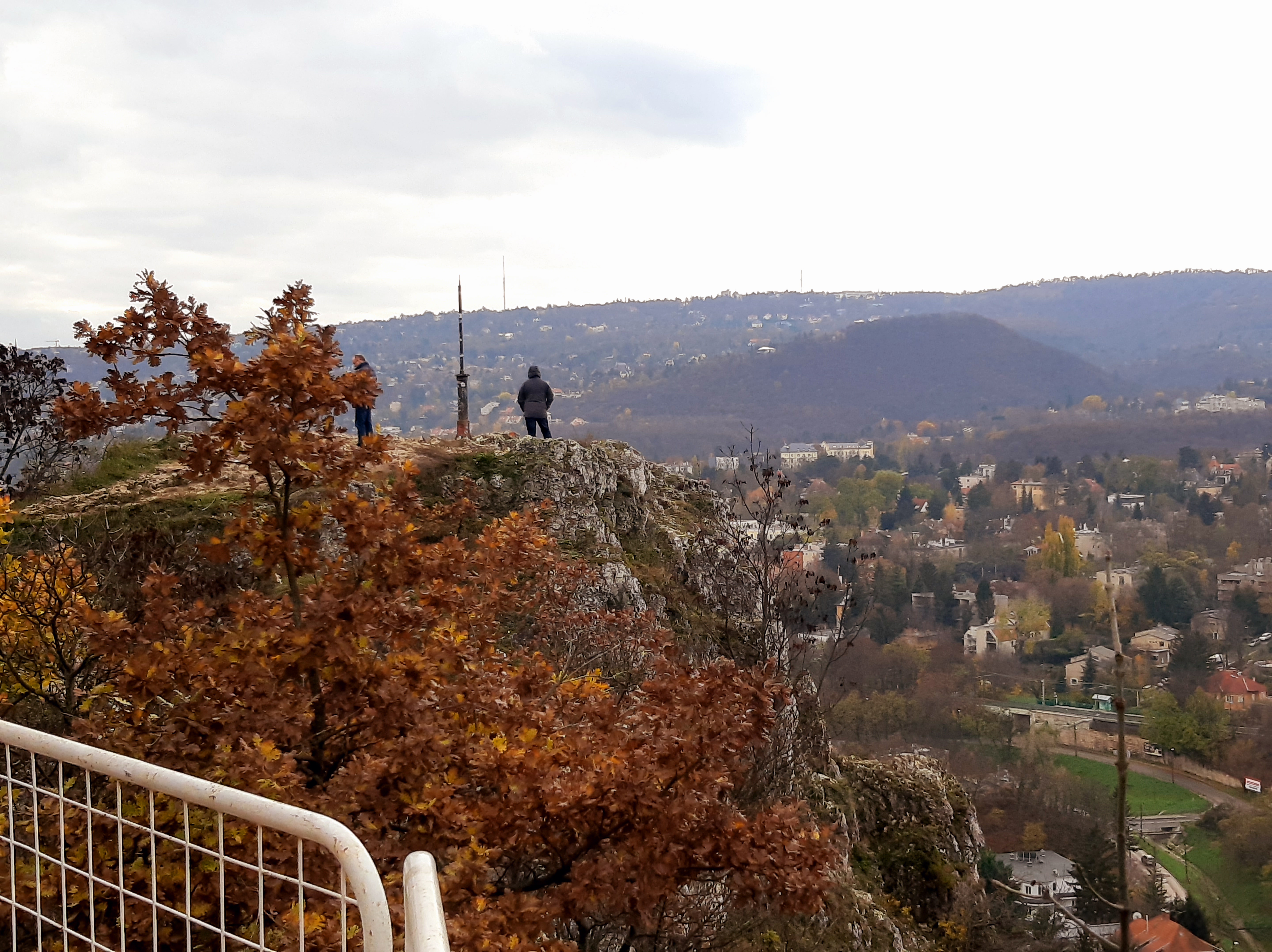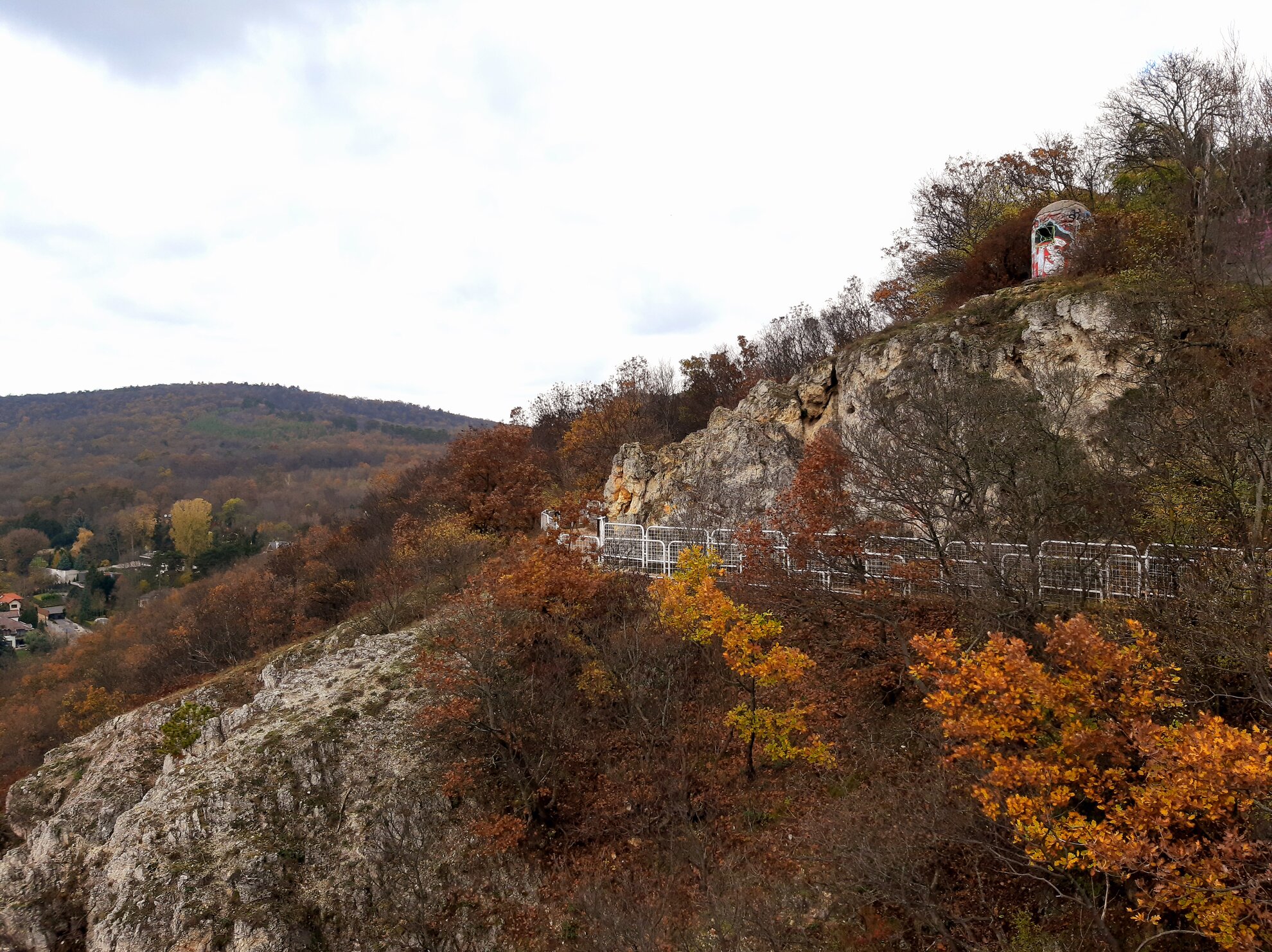
The
cliffs topped by 376-metre high Látó Hill cover an area of 5.7
hectares, and their most popular point is the rocky outcrop that juts out
southwards, offering a dizzying view. The drop may be precipitous, but it’s
perfectly safe to stand on and admire the view.
The rock got its name from the
former owner of the area, Gábor Apáthy, but its history goes all the way back
to the 1500s, when a royal hunting lodge was built here under the reign
of Mátyás I and Ulászló II. (You can still see the ruins at Hűvösvölgyi
út 78.)
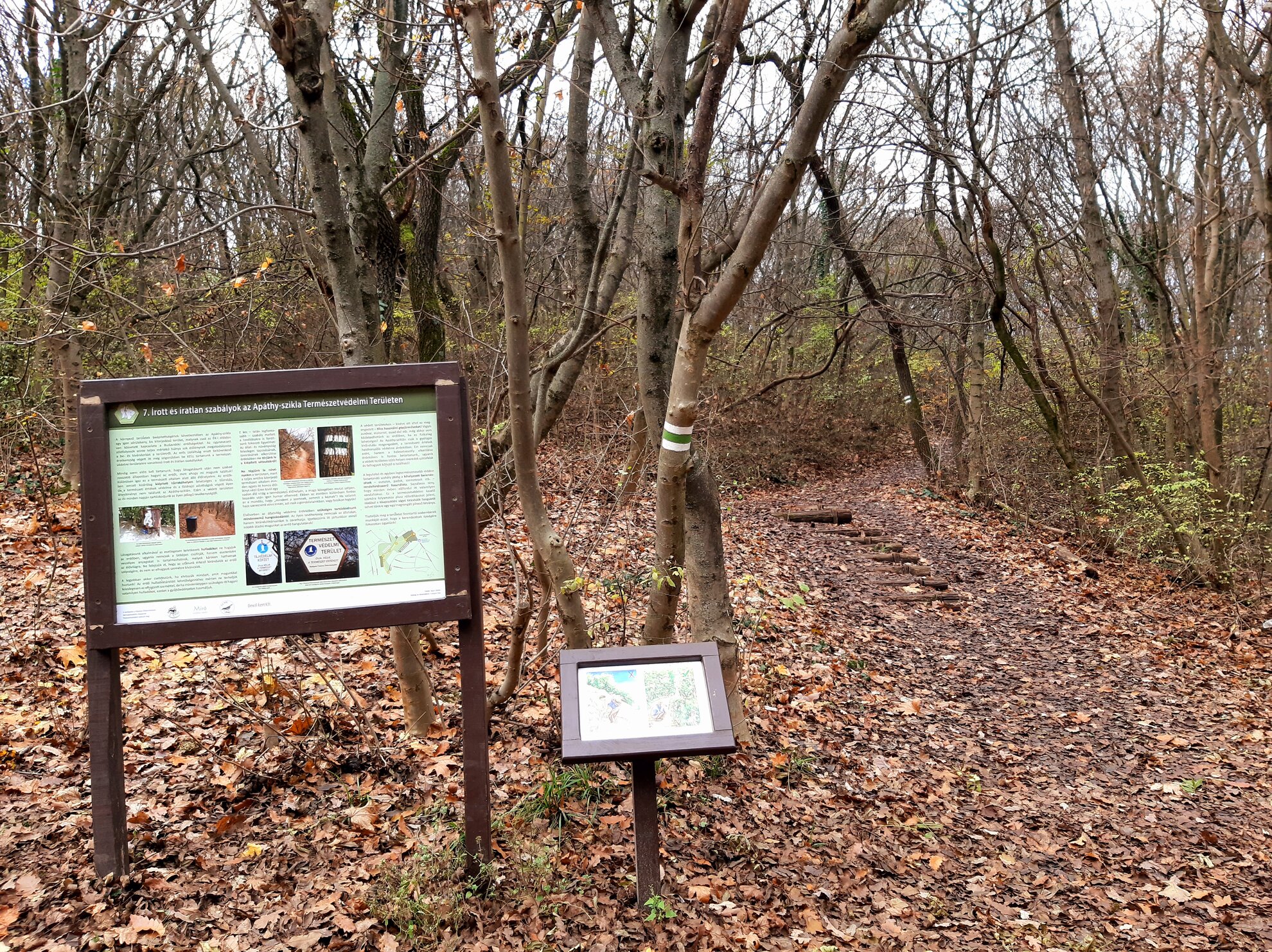
Take bus 11 from Batthyány tér towards Nagybányai út. It
will take around 20 minutes to get to the terminus, from where you should set off to look
for the green-marked hiking trail to the Apáthy lookout.
Additionally, the spot can be
reached from trams 61 and 69, and reached in about 15 minutes from the Nagyhíd
stop. If coming from this direction, the hiker should turn down Pasaréti út,
then to the Battai stairs and Battai út to the left, and finally left onto Csalán
utca and then right up the Nagybányai steps. At the top of these, you find the
sign for the Nature Reserve (Természetvédelmi terület), and the signature green
markers which line the entire nature trail.
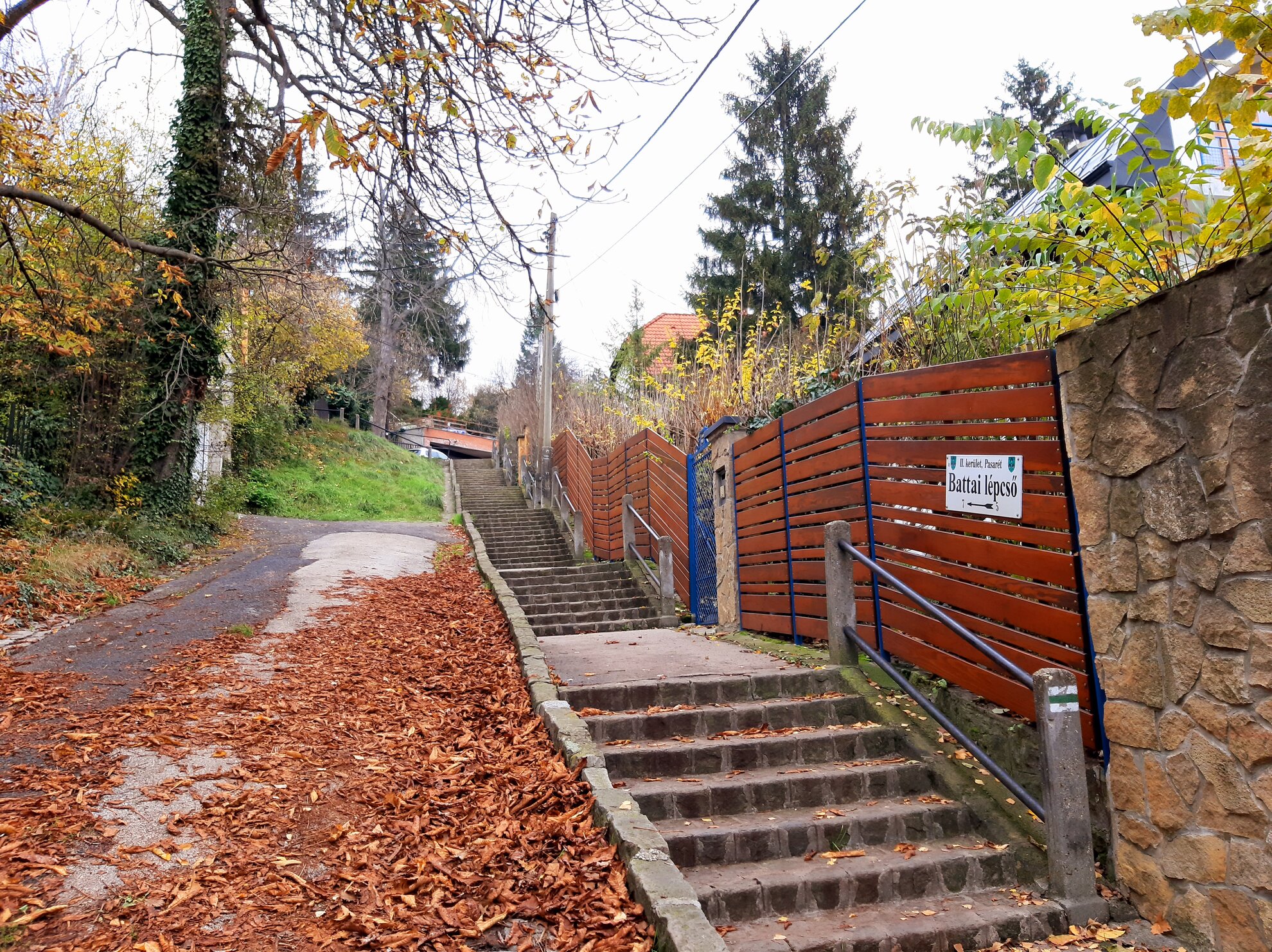
If coming from Hűvösvölgy, the climb is much steeper, but with the gyms closed currently, this might be a great exercise alternative!
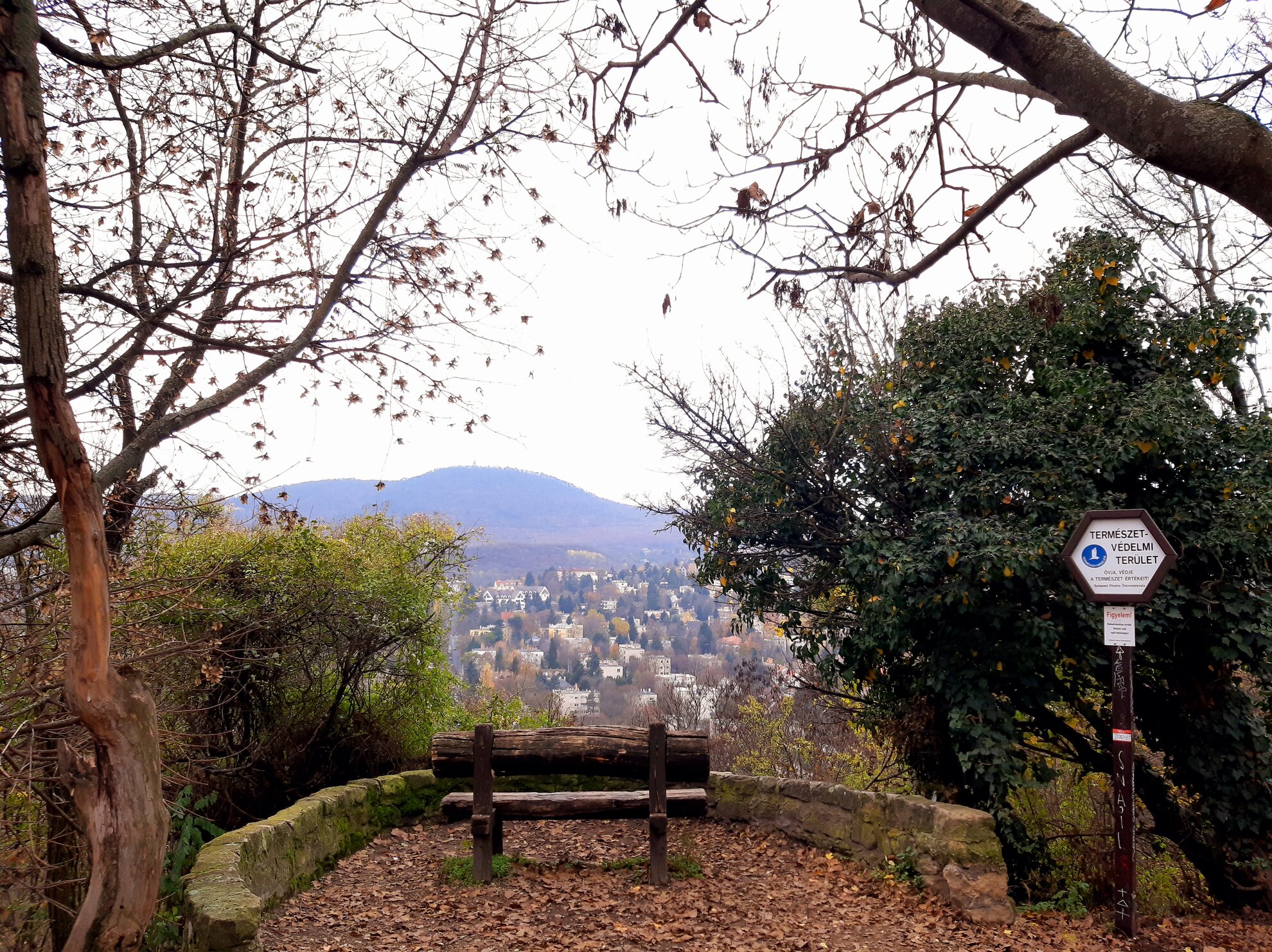
From the tram stop, you can see a large crane rising above the cliff, as construction is currently taking place right next to the lookout – the smell of fresh concrete wafts through the air, and a percussive drill of equipment accompanies the operation. Rumour has it that a private house will be constructed here – we only hope it doesn’t ruin the view!

At
the beginning of the nature trail, you get a taste of the panorama waiting for you from a handy bench. The trail leads directly to the cliff, so it’s up to you to
maintain safety. Danger aside, it’s a romantic spot, as we you see many sights,
such as Normafa, János Hill, Erzsébet Lookout Tower, Kis- and Nagy-Hárs Hill,
Károly Kaán Lookout Tower and Hűvösvölgy.
You also find an old pole which was
once part of a cross, with candlesticks at its base, and opposite the rock –
forgotten to history – is a World War II shooting range.
The
road continues, surrounded by a white metal fence, which is so secure that we
even saw a lady pass by with a stroller. The boards of the nature trail are
complemented by illustrated drawings and information about the geological structures, and local flora and fauna, providing ample information concerning nature
conservation.
It's a pity that graffiti covers the boards and
rocks in some places, and the area is littered with cans and
cigarette butts, which do a lot to squash the charm. (Of course, signs are
posted asking visitors not to litter – generally ignored.)
However,
it is worth going further into the depths of the forest along the green trail, beyond the popular parts of the excursion site. As the noise fades, the
air becomes clearer, and there's an unadulterated hiking experience to be had in the oak
forest.
Here, too, stands an impressive site: a rock formation known as Kőkapu,
or Stone Gate. This feature presents a cave cavity projecting inward, fenced
in with a blue-and-white ribbon from the municipal police, indicating that
climbing is forbidden.
At the end of the walk, you exit onto Nagybányai út, and on the other side of the path, you see the way towards the Árpád lookout tower, which is also easy to walk through. If you go even further, you’ll end up at Hármashatár-hegy. Going a few metres up Nagybányai út, you find yourself at the terminus of bus 11, which takes you back to Batthyány tér in 20 minutes.
